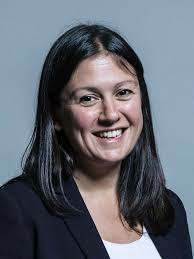Lisa Nandy – 2022 Speech on Social Housing and Building Safety
The speech made by Lisa Nandy, the Labour MP for Wigan, in the House of Commons on 9 June 2022.
On 14 June 2017, every single person in this country watched in horror as a blaze in London became, within hours, one of the worst disasters of modern times. Some 72 people lost their lives that day and dozens more were injured. Among them, as the Secretary of State has said, were young children, GCSE students, retired couples and entire families. As the family of 78-year-old Ligaya Moore poignantly put it, it was a tragedy that turned “laughter into silence”.
I join the Secretary of State in welcoming some of those families to the Chamber today. It always feels uncomfortable, at moments such as this when we stand here and speak, that their voices are not heard and ours are, but I have heard from many of the families affected by this appalling tragedy over the past few years that what they want most is to hear from us the action we will take to honour those lives and build a fitting legacy. I am determined that we will work with the Secretary of State and with all political parties across this House in order to turn that commitment that we have all respectively made into reality.
There has rightly been much soul-searching about how such a tragedy was possible in modern Britain. The public inquiry is still under way and must be allowed to do its work without political interference. However, that must never be allowed to become an excuse for delay or for justice denied, because this was not the first fire in a block with similar cladding. The Government were aware of problems as early as 1986, well before a block of flats in Merseyside caught alight in 1991. That fire, at Knowsley Heights, was followed by similar fires spanning three decades, from Irvine in Scotland to Southwark in south London, where six people lost their lives. In those intervening decades, the alarm was raised many times. One parliamentary inquiry led by the former Member for Southend West, David Amess, who is much missed in all parts of this House, warned that it should not
“take a serious fire in which many people are killed before all reasonable steps are taken towards minimising the risks.”
This series of failures spanned all political parties and successive Governments over many decades. We should have heard that and we should have acted. I therefore join the Secretary of State in saying, on behalf of my party, that we are sorry that we did not hear it and sorry that we did not act sooner.
But how did those warnings go unheeded by so many for so long? The Government’s lawyer told the official Grenfell inquiry that
“within the construction industry there was a race to the bottom, with profits being prioritised over safety.”
It makes me angry to hear that that can be admitted with such candour now but nothing was done before. I share the Secretary of State’s passion to go after those who recklessly disregarded people’s lives and put their profits and their own interests before safety. If they broke the law, acted recklessly or acted immorally, then I will join him in going to the ends of the earth to make sure that they pay a heavy price for doing so.
We have to ask ourselves, too, standing here in the centre of power: who permitted that to happen? Over 30 years and five different Governments—Labour, coalition and Conservative—how did it come to pass that profits were allowed to matter more than people. How could the concerns and lives of people in the centre of one of the wealthiest boroughs in the wealthiest city in one of the wealthiest countries in the world be ignored—effectively rendered invisible by decision makers only a few short miles away? The appalling tragedy suffered by the people of Grenfell is undeniable evidence of the unequal society that we live in, where lives are allowed to be weighed against profit on a balance sheet and come out the worst, and where those who lack money also lack power. When I talk to social housing tenants up and down the country, this what I hear so often—that they are not seen or heard by decision makers, and that when they raise their concerns and bang on the doors of the corridors of power, those concerns still go unheeded. One social housing tenant said to me: “We simply do not count.” This has to be the day when we stand up together and say, “This ends now.”
There are 4 million families in rented social housing in England. Every single one of them deserves a decent, safe home, and, more than that, the power to drive and shape the decisions that affect their own lives. We should be scandalised that so many homes are not up to a fit standard, not just on fire safety but in being cold, damp and in a state of disrepair that shames us all in modern Britain: homes with black mould and water running down the walls; homes that are unsafe; homes that are damp and overcrowded. I recently heard from a teacher about a child who was coming to school covered in rat bites. The school is using its pupil premium to send people round to make sure that these children are clothed, fed and protected from rats. What have we come to in Britain in the 21st century? It is an absolute disgrace.
The Secretary of State is right that we should take a zero tolerance approach to social landlords who do not live up their obligations—who do not do everything within their power to make sure that those issues are dealt with. But I also gently say to him, in a constructive tone, given the gravity of what we are dealing with today, that the Government have to do their bit as well. That means reversing some of the cuts that have been made to councils and housing associations in recent years which mean that repair budgets are virtually non-existent in many parts of the country, and that good people have been lost and expertise has gone.
We welcome the decision to publish a social housing reform Bill to try to tackle some of these issues, although we are concerned that it has not materialised in advance of this debate. We were led to believe that we would have that Bill before we stood up to speak today. If there are problems within Government—if there are wranglings taking place behind closed doors—my offer to the Secretary of State is this: we will work with him and support him in whatever battles he has to make sure that this Bill sees the light of day, and quickly. That also goes for the renters reform Bill, which must, as my hon. Friend the Member for Brentford and Isleworth (Ruth Cadbury) said, deal with the appalling standards in many private rented homes up and down this country. Some of that, I have to say to the Secretary of State, has been caused by Government policies such as the bedroom tax, which forced many people out of the secure social home that they had lived in for many years, close to friends, family and children’s schools, and into private, rented, often overcrowded and substandard accommodation that, absurdly, cost the public more than it did to house them in their own home.
We welcome some of the measures that the Secretary of State has proposed, particularly the promise to beef up the role of the regulator. This is a welcome step forward giving it the power to inspect, to order emergency repairs, to issue limitless fines, and to intervene in badly managed organisations. But we have to do more to tilt the balance of power back towards tenants to give them not just a voice but real power to shape and drive the decisions that affect their lives, their homes, their families and their communities. The measures on tenant satisfaction and a residents’ panel that meets Ministers three times a year are welcome, but well short of a dedicated tenants’ organisation that is put on a statutory footing and exists to be a voice to champion their interests. Such a body existed under the last Labour Government but was scrapped by the Secretary of State’s Government in 2010. I ask him please not to close his mind to perhaps revisiting previous methods that worked. Let us work together with tenants to get this right once and for all.


